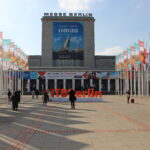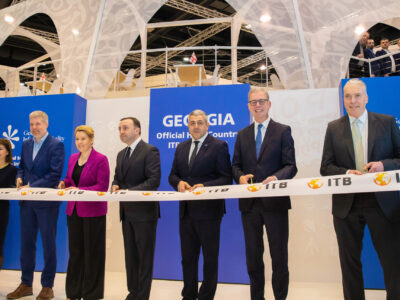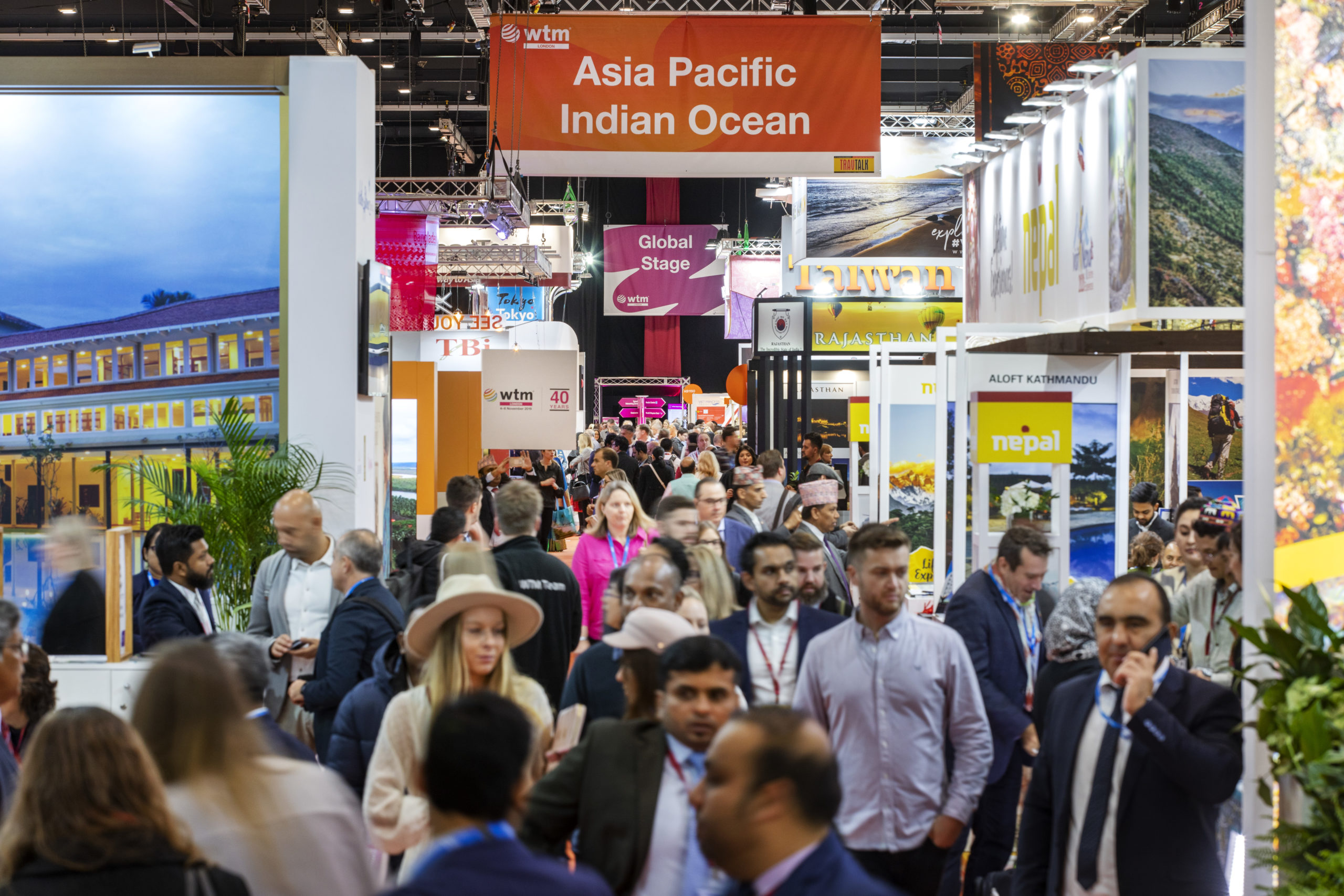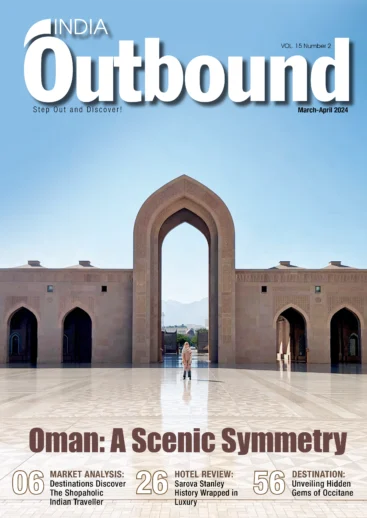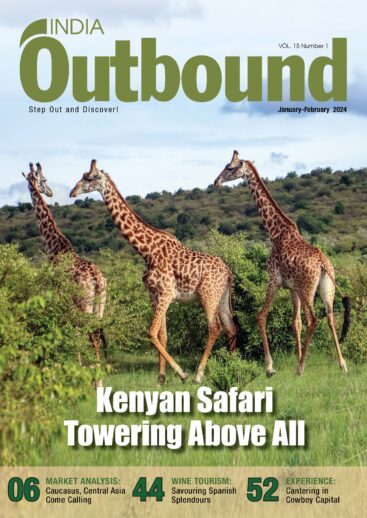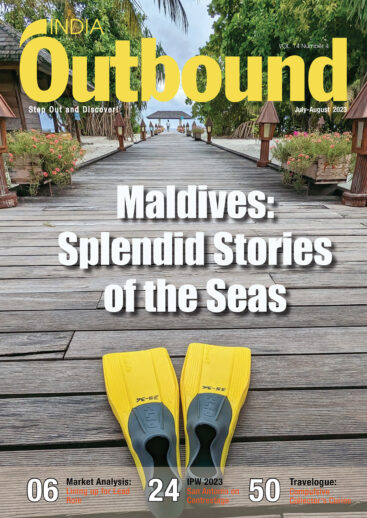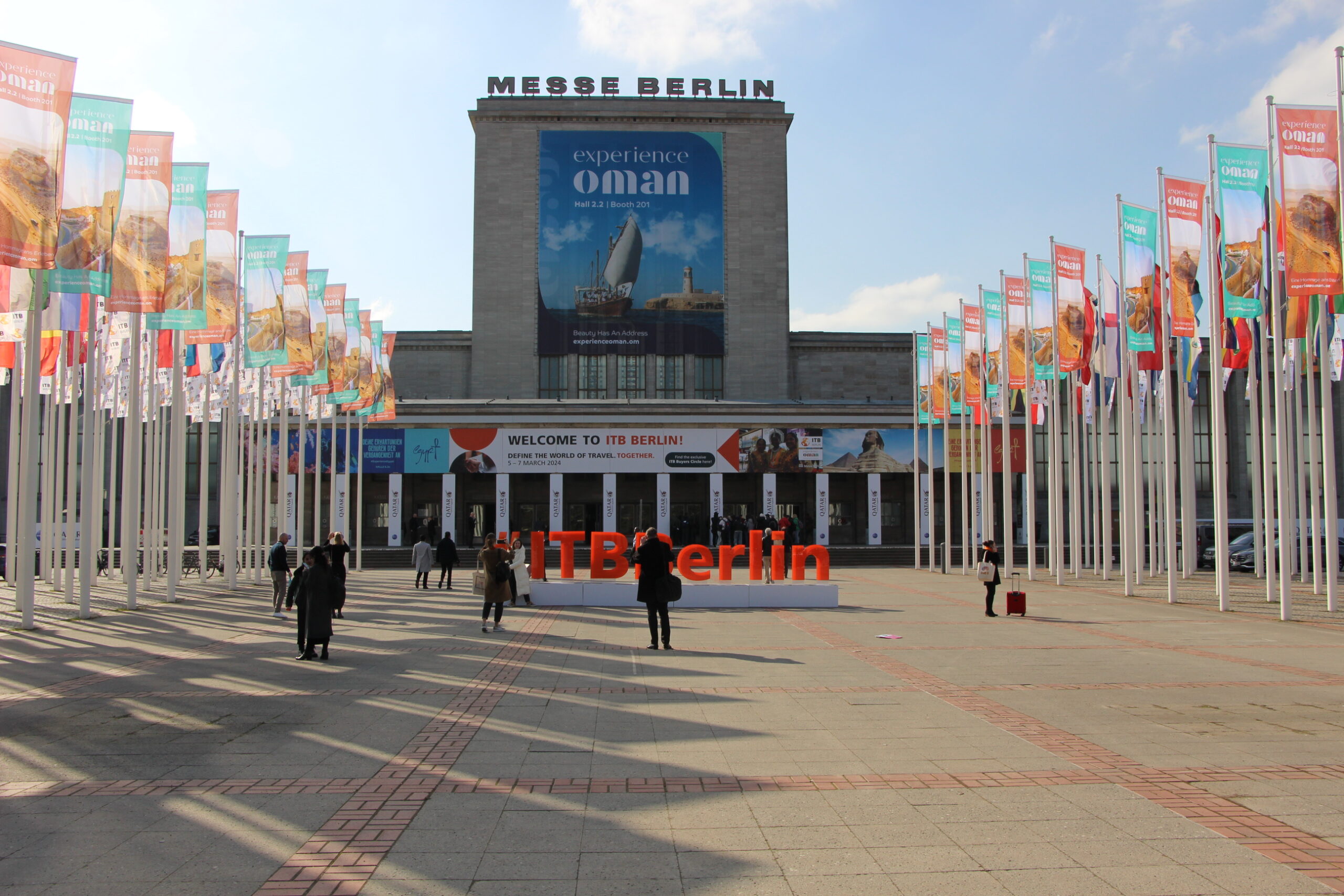
Around 3,200 accredited journalists from 103 countries and over 300 bloggers reported on ITB Berlin
With over 100,000 persons attending the show over its three days, the world’s largest travel trade show, ITB Berlin has concluded in the German capital on Thursday.
In a press statement, the organisers, Messe Berlin, say that all signs point to success in 2024 as ITB Berlin put a clear focus on shaping the future and once again underlined its role as the leading international platform for business, innovation and networking. The statement adds that despite widespread strikes, this year’s ITB Berlin recorded a slight increase with nearly 100,000 attendees, a result that exceeded expectations in the face of challenging strike circumstances.
The organisers add that diverse and globally represented, more than 5,500 exhibitors from 170 countries illuminated the three business days, occupying all 27 exhibition halls at the Berlin Exhibition Grounds.

Mario Tobias
“ITB Berlin once again mirrored industry developments. The mood among exhibitors, visitors and speakers was very positive throughout. They generally agreed that people’s desire to travel is not just satisfying pent-up demand after the pandemic, but that it will remain basically stable. Neither inflation nor high energy prices appear to be curbing demand,’’ says Mario Tobias, CEO, Messe Berlin.
The statement adds that the proof of the fact that the industry is a driving force for innovation was given not least by the ITB Berlin Convention, which took place parallel with the three-day show and featured high-profile attendees and a total of 400 leading international speakers at 200 sessions and 17 theme tracks discussing trends and innovations. All in all, around 24,000 attendees came to the panels, discussions, keynote speeches and lectures, again acknowledging the convention as the industry’s leading international thinktank.
The statement adds that ITB Buyers Circle with its 1,300 senior buyers served as an industry barometre and underlined the importance of ITB Berlin as a leading business platform. Together with the management consultancy Dr Fried & Partner, ITB Berlin compiled the new Global Travel Buyer Index. The survey asked several hundred Buyers Circle members about the economic mood and their business goals. The findings reflected a positive mood throughout regarding the market situation and provided an optimistic outlook for business over the next six months.
The organisers add that around 3,200 accredited journalists from 103 countries and over 300 bloggers reported on ITB Berlin. Theys ay that the show was once again a meeting place for politicians and diplomats from all over the world. In addition to numerous delegations, almost 80 ministers and state secretaries as well as 72 ambassadors visited this year’s ITB Berlin.
Sessions on AI, mobility & sustainability
AI and its potential uses were a much-discussed topic. For the first time, the ITB Berlin Convention hosted a dedicated AI Track, which was very well received by the event’s 24,000 attendees. It was generally agreed that no organisation or company could any longer ignore AI.
In the session, Glenn Fogel, CEO of Booking Holdings, said that generative AI can be of more assistance than real humans when customers are making their travel plans. In her intervention, Charuta Fadnis, SVP, Phocuswright also acknowledged the growing importance of AI and personalised travel apps. Generative AI is already improving sales, while in Fadnis’ view, using virtual agents and combining AI with blockchain technologies will be key to preventing misuse in the future.
The convention participants also agreed that it was impossible to ignore climate justice and the skills shortage, for which there were promising solutions however. Jeremy Sampson, CEO of the Travel Foundation, appealed to the tourism industry to aim for net zero by 2030. His study entitled Envisioning Tourism in 2030 and Beyond outlines a dynamic path with a focus on regulating air travel and 40 measures in six categories for achieving sustainable tourism by 2050, says the statement.
The organisers say that AI was also a big topic for the ITB Innovation Radar, which this year celebrated its second edition. The focus was on 16 forward-looking innovations presented by industry visionaries. They ranged from B2B services for the hospitality industry and travel industry professionals to sustainable concepts. The innovations offered a glimpse of future trends.
According to the statement, this year’s host country Oman made a strong showing, doubling its display size in Hall 2.2 to more than 800 sqm. On Monday evening, the Sultanate hosted the traditional opening gala with a spectacular show to great admiration and applause. The around 3,000 guests witnessed a wide-ranging presentation of the country’s natural attractions, culture and especially music. Azzan bin Qassim al Busaidi, Under-Secretary of Tourism of the Ministry of Heritage and Tourism in Oman, highlighted the success of his country in building a tourism infrastructure and praised the cultural heritage and natural attractions of the Sultanate. In 2023 Oman registered 4 million visitors, a 22 pc increase over 2022.
“Despite all the euphoria and the positive outlook, the participants were all aware of the huge challenges also and in particular facing the travel industry. The ’Together’ in this year’s slogan underlines the fact that only community action can master the travel industry’s challenges,’’ Tobias said.
The statement added that following the pandemic and compared with 2023, this was the first time the industry registered a positive trend in the Asian-Pacific region. One example was China, which celebrated its return as an exhibitor this year and now welcomes visitors from selected countries by fast-tracking their visas. All in all, the attendees at ITB Berlin were able to return home in positive expectation of this year’s developments and can look ahead to excellent business and a large volume of early bookings, especially for summer 2024.
There was positive news at the show regarding hall occupancy. The re-opening of five refurbished halls permitted several changes, together with improvements in many areas. For the first time, the German-speaking countries were all under one roof and together occupied hub27. China, Liechtenstein and the Emirates Airline were welcomed back to the show, along with newcomers Dominica, the Cayman Islands and Disney Cruise Lines, say the organisers.
The statement adds that many exhibitors had expanded their displays. They included popular holiday destinations Italy, Greece and Turkiye as well as exhibitors from the Asian, Arab and African markets. The Travel Tech segment also expanded again. This year the mobility segment also reflected a growth market, and the cruise segment again showed itself to be ever-popular.
The organisers say that with Albania as the host country, ITB Berlin 2025 will be held from March 4-6, 2025.








